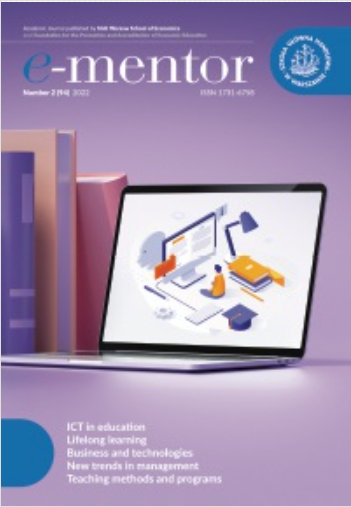Improving intercultural pragmatic competencies in online L2 Spanish classrooms through task-supported learning
Improving intercultural pragmatic competencies in online L2 Spanish classrooms through task-supported learning
Author(s): Jeremy W. BachelorSubject(s): Education
Published by: Szkoła Główna Handlowa w Warszawie, Fundacja Promocji i Akredytacji Kierunków Ekonomicznych
Keywords: interlanguage pragmatics; intercultural communication; online learning; motivation; task-based language teaching
Summary/Abstract: Learners of a second language often have limited access to the native culture of that language in an authentic way, resulting in them committing linguistic and intercultural mistakes. One of the main advantages of task-based learning is that it can expose students to real-world circumstances, which makes learning a language more meaningful and inclusive of appropriate language behaviour. Task-based learning has become an accepted method for learning a language in face-to-face classroom environments, but its applicability to online learning is largely unaddressed. The author proposed well-organised online role-plays based on a task-based approach involving native speakers, which helped students interact in an authentic way and demonstrate their understanding of culture. The author conducted the research to increase intercultural pragmatic competencies in online L2 classrooms regarding common pragmatic speech acts as to not only increase their pragmatic competency but to also motivate students. The students from the online experimental group who were exposed to task-supported role-plays performed better than the online control group of students; however, student motivation was only mildly impacted. Thus, pragmatics and interculturality can be effectively taught in online L2 classrooms through task-supported learning, though motivation may require longer interventions.
Journal: e-mentor
- Issue Year: 94/2022
- Issue No: 2
- Page Range: 19-27
- Page Count: 9
- Language: English

